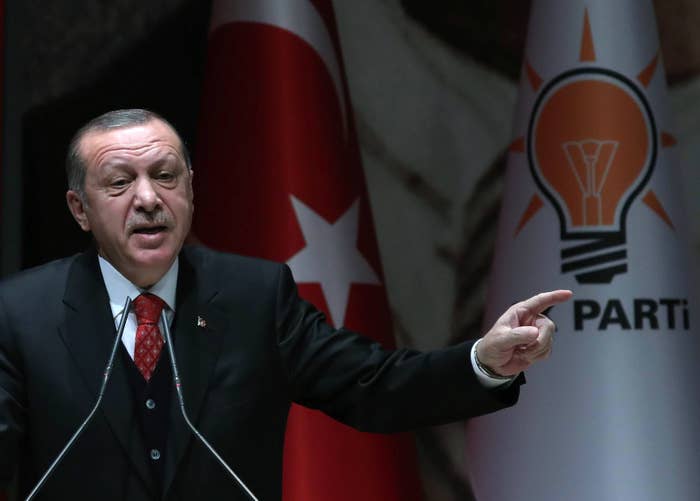
Reza Zarrab, a Turkish gold dealer whose arrest in a massive money-laundering case brought months of angry denunciations from the Turkish government, has agreed to testify as a government witness, prosecutors told a New York City federal court Tuesday.
Court observers long had suspected that Zarrab, 34, considered a member of Turkish President Recep Tayyip Erdogan’s inner circle, would cooperate with prosecutors. But the announcement in court that he would be the key witness against Hakan Atilla, an executive of the Turkish bank that US officials say expedited the money-laundering scheme, raises the likelihood that his testimony will implicate top officials of Erdogan’s government in a plot to help Iranian companies evade terrorism-related US sanctions.
According to news accounts of Tuesday’s proceedings, Assistant US Attorney David William Denton Jr. told jurors that he would present evidence that the defendants in the case paid “millions of dollars of bribes to the highest-level officials of the Turkish government” to look the other way.
The charges against Atilla and eight other Turkish citizens, including a former economy minister, have drawn withering criticism from the Turkish government, which claims the case is an American plot to embarrass Erdogan and Turkey. Turkish officials went to unusual lengths to try to block the prosecution, including lobbying top officials of the Trump administration, demanding that Zarrab and Atilla be returned to Turkey, and arresting US citizens living in Turkey and Turks working for the US government on vague espionage allegations.
Erdogan himself publicly linked the arrests to both the Zarrab prosecution as well as to demands that the US extradite to Turkey Fethullah Gulen, an elderly cleric and one time Erdogan ally living in the United States who Turkish officials accuse of orchestrating a coup attempt in 2016.
Turkish officials appear deeply concerned that Zarrab will reveal granular details about the plot, which US prosecutors say allowed a series of Iranian companies that the US Treasury Department had designated as supporters of terrorism to skirt US sanctions. Adding to the potential embarrassment of the plot is its timing from 2011 to 2013, a period when Turkey was openly supporting Syrian rebels against the government of Syrian President Bashar Assad, who was supported by Iran.

Lawyers for Atilla asked US District Judge Richard Berman, who is hearing the case, to delay the trial so they could absorb the implications of Zarrab’s cooperation and review more than 10,000 pages of evidence, much of it in Turkish, that prosecutors only recently turned over to them. But Berman rejected their motion, offering instead to instruct the government to adhere to a formal schedule on announcing witnesses and releasing documents.
Berman noted that Atilla’s lawyers should not have been surprised that Zarrab had turned state's evidence, calling it something “experienced counsel ... should have known for several months.”
Berman also chided the defense team for claiming that it could not both conduct a trial and evaluate new evidence introduced by the prosecution, noting its size.
“Although the Court is not suggesting how the Defense team should prepare for and conduct trial,” Berman wrote, “perhaps it makes the most sense to have part of the (at least) 9 attorneys and unknown number of support personnel combing through the voluminous records while others are in the courtroom, on a regular basis.”
Zarrab’s plea agreement is expected to be made public later Tuesday or at the start of court on Wednesday, according to court filings.

